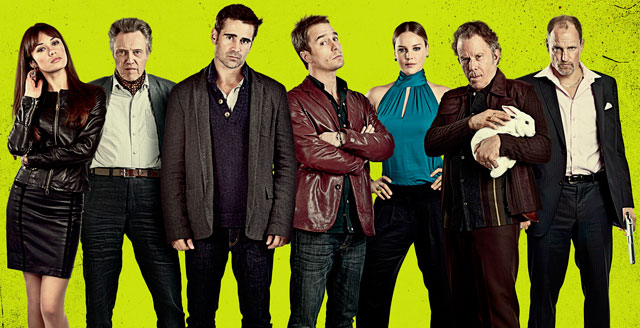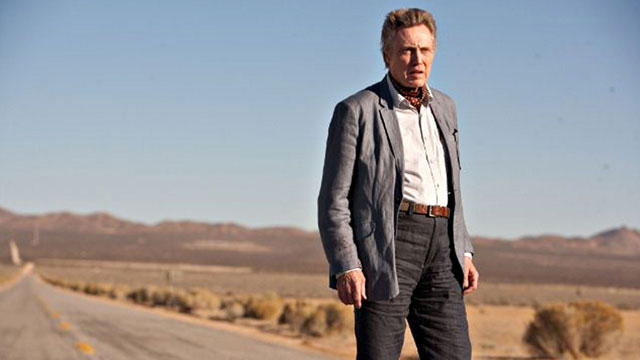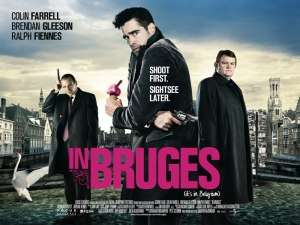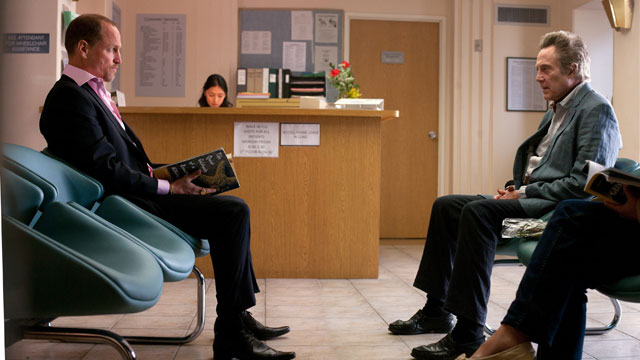If I could make love to a film, I’d make love to In Bruges. Wait. Let me start again. In Bruges was absolutely brilliant. Okay. That’s it. I’ll try to contain this review to the work at hand, Seven Psychopaths.

Martin McDonagh is a playwright-turned-filmmaker, and his first feature film, In Bruges (ugh, I mentioned it again), is pretty much a masterpiece. Don’t believe me? Well it was nominated an Oscar for best original screenplay, and it gave lead actor Colin Farrell his biggest award yet: a Golden Globe for best male dramatic lead.
So, when I found out about his follow-up, Seven Psychopaths, I immediately jumped at the occasion to see it.

In Bruges (I tried) was so smart, so funny, so ballooned with the stuff you want from a cinematic experience: laughter, genuine laughter, thrilling dramatic turns, characters you cared for, dialogue that made sense and that challenged you to make sense from it, and a pacing, between all these elements, that should be referential material in film classes.
sense from it, and a pacing, between all these elements, that should be referential material in film classes.
Seven Psychopaths has those things, but it runs like a companion piece to In Bruges, as if McDonagh documented his experience writing that film inside a vacuum with the people and muses that influenced his violent absurdisms, all playing a part in his symphony of chaos, he the conductor, tying the elements together while maintaining purpose.
Seven Psychopaths follows Colin Farrell’s “Marty”, named after the writer/director at hand, as he drunkenly stumbles his way through writing a script using his two psychotic friends (Christopher Walken and Sam Rockwell) as windows into a world he careens around yet ultimately wants to know in detail. He wants to make a film that has violence, but that isn’t about violence; a tough stance in today’s cinematic “gory and glory era” (FX advances have really helped us understand what a person’s body looks like when it’s blown to bits).
If I were to maintain Seven Psychopaths to a singular statement, I’d say it’s McDonagh’s meditation on the writing process and  the muses that influence that process, but that’s easily ascertainable, even to the untrained student of cinema. Even more, it’s his grievances on the limited structure of story. But, it’s even more than that (in the trailer, Walken says, “It’s got layers.”)
the muses that influence that process, but that’s easily ascertainable, even to the untrained student of cinema. Even more, it’s his grievances on the limited structure of story. But, it’s even more than that (in the trailer, Walken says, “It’s got layers.”)
Sam Rockwell, who is dazzling and perhaps gives the best performance of his career, is obsessed with having a great “final shootout”, because, that’s how these things are supposed to end, right?
If you’ve seen In Bruges, then you know that the final sequence is just that, a long shootout drawn through the streets of Belgium. But, with Seven Psychopaths, McDonagh goes very meta, and I mean very meta, and ponders even the question, reality and juxtaposition that these violent elements fit into telling a story about the realities of life, death and the narrative that follows. That’s all we’re trying to do with storytelling, isn’t it? Explain the unexplainable? Give meaning to those things in which haven’t got the answers for, only the feelings that represent those suppositions?
McDonagh piles on the violence in this film—heads exploding in close-up, throats slicing, disembodiments and more, all with the purpose of desensitizing you to the real truth, and that is: these elements are all just vehicles. Vehicles of what, you ask?
Vehicles of singularity. Punctuality. When I walked into Seven Psychopaths, I expected a unique transmission. In Bruges was a meditation on the balance between life and death, heaven and hell, the things we must and mustn’t do—as ordained by society—to reach either plain.
Expectations are a funny thing though, because as I left this film’s showing, I was disappointed.

Sure the acting was great (Woody Harrelson is fiendishly delicious), the dialogue was sharp, the editing and overall entertainment values were all something to be proud of, but it didn’t feel like that rich, singular experience I wanted that I felt after seeing In Bruges.
Seven Psychopaths edges the line between Lynchian storytelling and mainstream affair, and I didn’t want Lynchian. I wanted McDonaghism. That’s what I came for.
Then, I thought about Christopher Walken’s monologue that greets us at the film’s exit door, when he explains, into a tape recorder, the personal motivations behind a monk—a character in “Marty’s” script—burning himself alive.
Another monk approaches the gasoline-drenched man in question, and explains to him that he doesn’t have to do it. He doesn’t have to proceed with this violence.
But, the suicidal monk already understands this. Of course he doesn’t have to do it. None of us have to do anything. We just do. There’s no ultimate rhyme or reason. No justifying court upon which we are held upon where our values, principals and actions are weighed against one another. No ultimate doctrine of morality and discernible pathways.
do. There’s no ultimate rhyme or reason. No justifying court upon which we are held upon where our values, principals and actions are weighed against one another. No ultimate doctrine of morality and discernible pathways.
There is only chaos, and that, is the kindest and most loyal structure of all. And, when I realized this—hours after watching and pondering Seven Psychopaths as a misstep in Martin Mcdonagh’s career—I came to the conclusion that not only had I just seen a great piece of art, I had just seen a profound and moving statement on societal structure. And that, my friends, is about as much as you can ask for from the cinema.
Comments
‘Seven Psychopaths’ Review: Like Nothing You’ve Seen Before